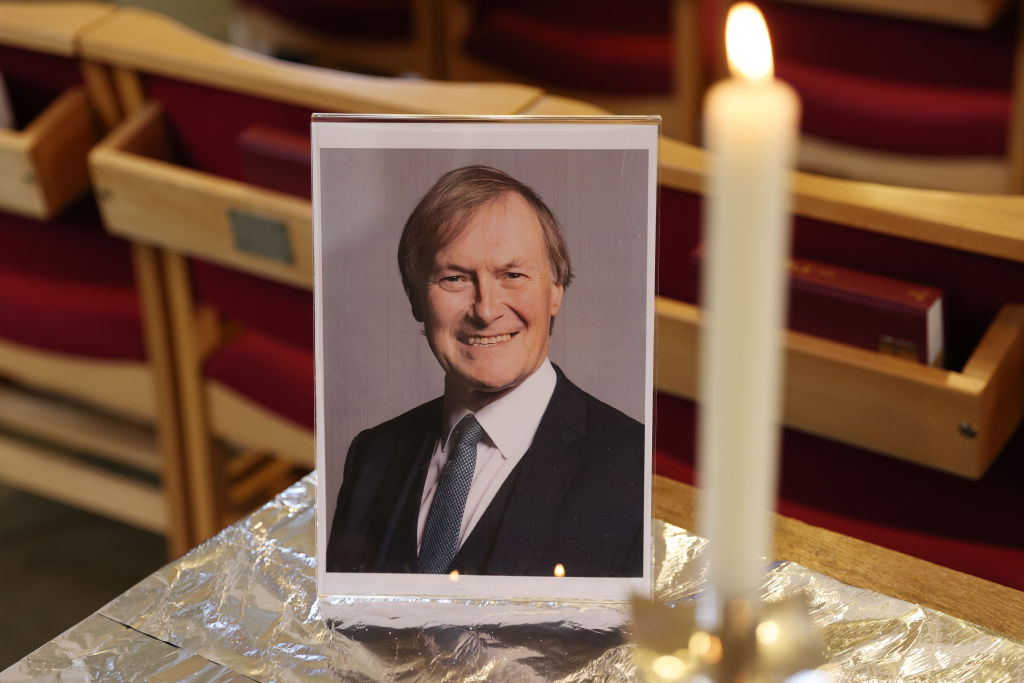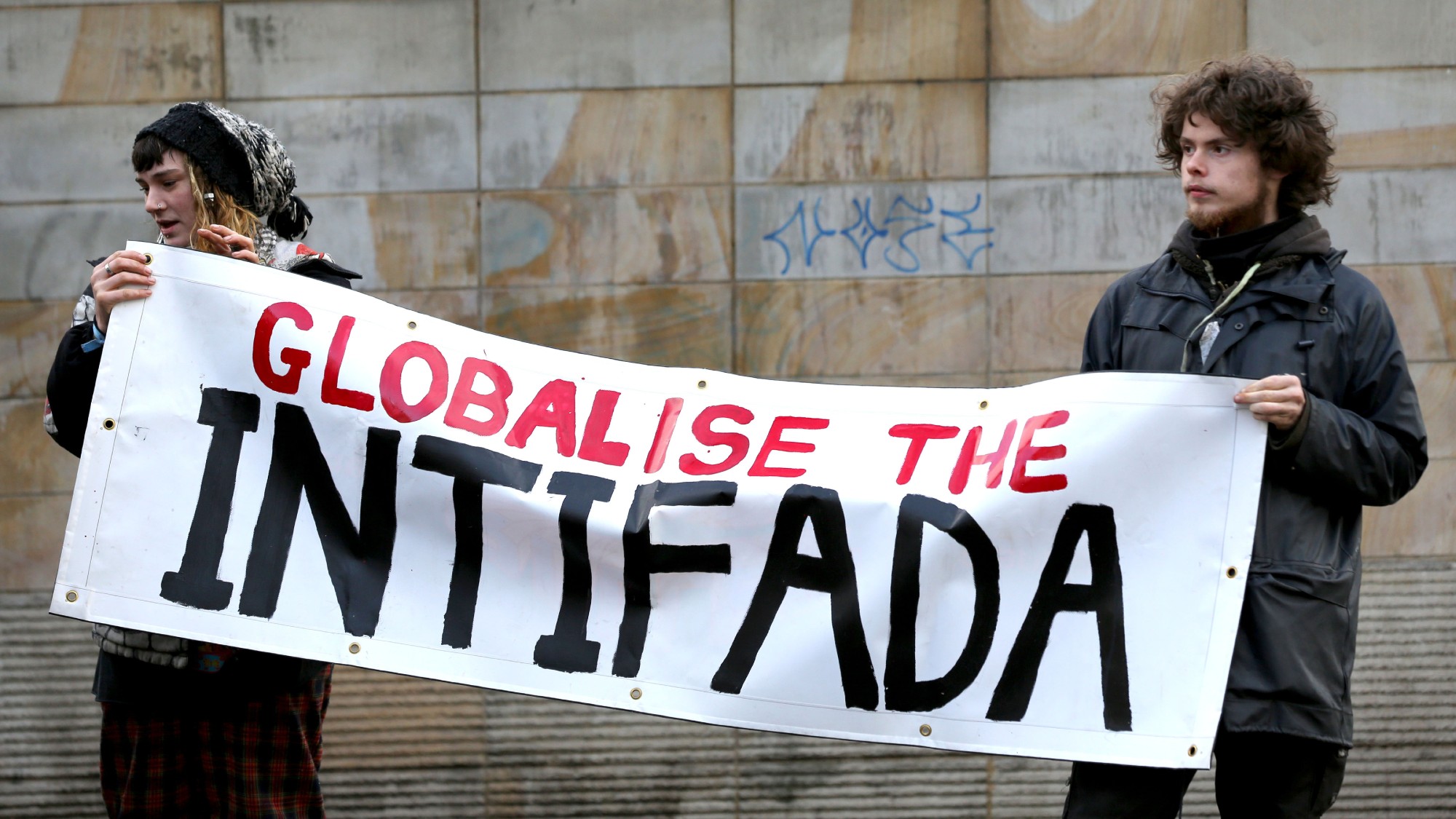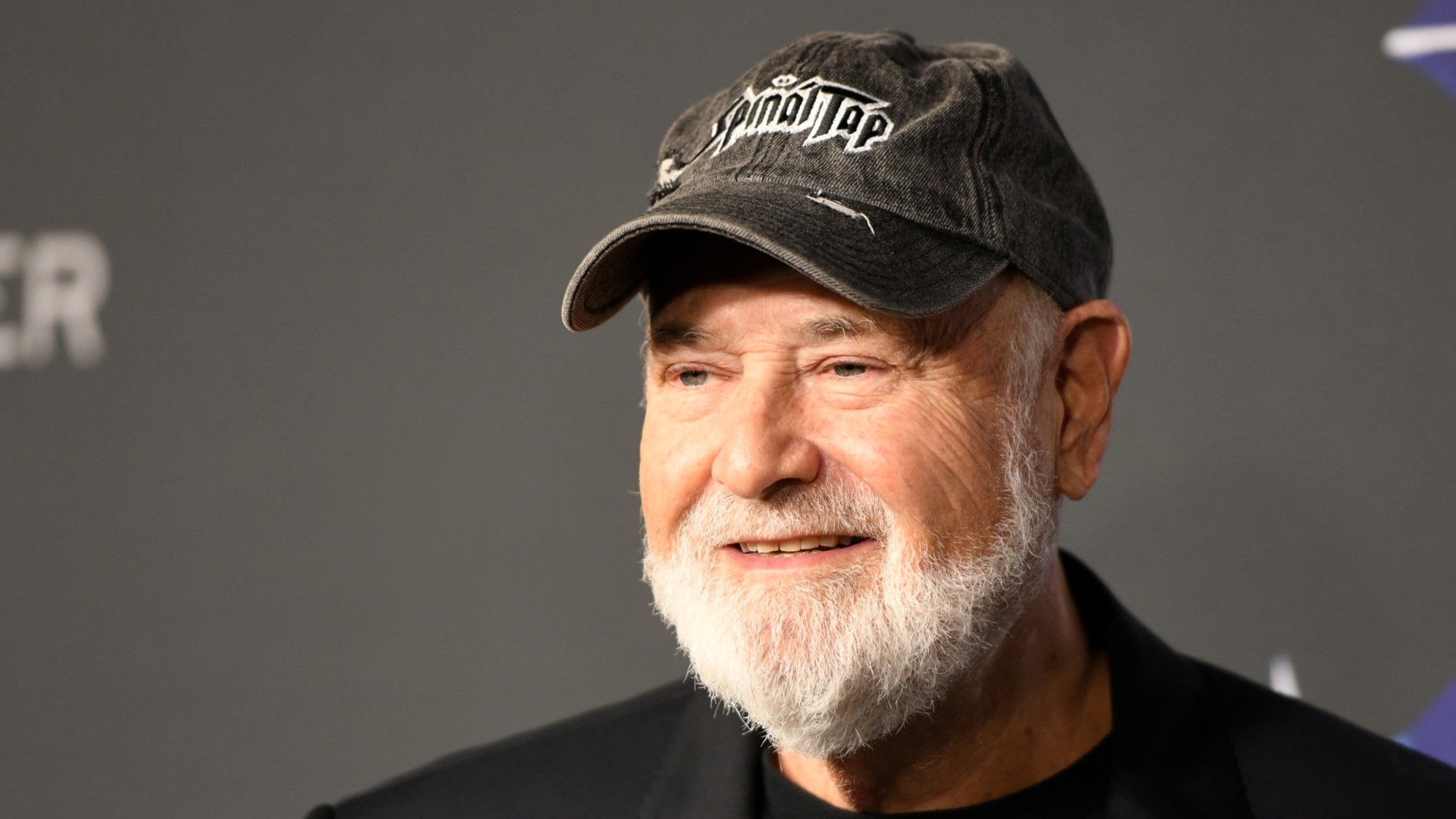David Amess, Jo Cox and the knotty problem of MPs’ security
Protecting politicians away from Parliament while maintaining democratic openness presents major challenges

A free daily email with the biggest news stories of the day – and the best features from TheWeek.com
You are now subscribed
Your newsletter sign-up was successful
Counterterrorism specialist Dr Alasdair Booth of Loughborough University on the tricky balance of guarding against potential threats without hindering MPs’ constituency work
The Metropolitan Police have confirmed that they are treating the attack that killed Conservative MP Sir David Amess on 15 October as terrorism. A 25-year-old man was arrested at the scene of Amess’ death – Belfairs Methodist Church in Leigh-on-Sea, Essex.
Amess, the Conservative member of parliament for Southend West, had been using the church to hold a constituency surgery. These meetings – sometimes called political surgeries – form the bedrock of British democracy. They allow constituents to engage directly with the MPs they elect. It’s their opportunity to raise and discuss issues that matter to them.
The Week
Escape your echo chamber. Get the facts behind the news, plus analysis from multiple perspectives.

Sign up for The Week's Free Newsletters
From our morning news briefing to a weekly Good News Newsletter, get the best of The Week delivered directly to your inbox.
From our morning news briefing to a weekly Good News Newsletter, get the best of The Week delivered directly to your inbox.
Although attacks on MPs in the UK are rare, five have been killed while in office since 1979 – mostly in terrorist incidents related to the Troubles in Northern Ireland. Over this period, significant improvements have been made to the security measures in place at the Houses of Parliament in Westminster.
In the early 2000s, concrete blocks were positioned outside to stop hostile vehicles driving explosive devices into Parliament. Due to the threat posed by international terrorist groups, more permanent security measures have appeared over the years – both in and around the Houses of Parliament. These form what has become known as the government security zone, which encompasses Whitehall, home to many government departments, and the Houses of Parliament. Lines of security bollards and security balustrades are overt and have become everyday features. Armed police are a constant presence.
Having a range of measures in place enables police and security authorities to quickly respond to a terrorist threat to protect the parliamentary estate. A decision has also clearly been made that security should be very visible. It has become much harder to enter Parliament as a visitor and moving around the area will lead you through various security apparatus, even if you have no intention of entering any government buildings.
And despite the prominent security apparatus, terrorists have still targeted the area around Westminster, including in 2017, when a man hit pedestrians with his car before going on to stab and kill a police officer stationed outside Parliament. This attack led to a further security review.
A free daily email with the biggest news stories of the day – and the best features from TheWeek.com
Safety beyond Westminster
While security has been dramatically beefed up around Westminster, the question of what to do in local constituencies has thrown up a different set of issues.
When Labour MP Jo Cox was murdered at her constituency in West Yorkshire in 2016, greater attention was given to the security of MPs away from Parliament. The police launched Operation Bridger, a national protective security operation specifically designed to enhance the security of MPs. All MPs were subsequently offered additional security at their constituency offices and homes including the use of panic alarms and extra lighting.
But a fundamental part of an MP’s role, as an elected representative of local people, is to be accessible to constituents. The job includes time spent in their community responding to its needs. It is not simply a life spent in the corridors of power.
And enhancing security at constituency offices is not a cure-all either. Not all constituency surgeries are held at MPs’ offices or their homes. Local MPs need to move around their areas to make it feasible for people to meet them. In practice, that means shifting between public buildings, such as churches and community halls – as was the case for Amess when he was attacked. These buildings often have little or no security and are rarely designed to deal with terrorist threats such as vehicle or weapon attacks.
Nevertheless, a balance needs to be struck in ensuring MPs are sufficiently protected and can continue to conduct their work.
The home secretary has announced that all police forces are to review MPs’ security arrangements in their local areas with immediate effect. It is likely that additional security measures will be needed to reassure MPs but also, after this case, to reassure constituents that it’s safe to go to a constituency surgery to talk to their MP.
Measures could include reviewing physical security at existing venues and general locations where current constituency surgeries are held. Another option could be introducing visible uniformed private security staff or police officers at some constituency surgeries. This might help visitors feel safe. However, some security measures can have the opposite effect – instead creating a climate of fear of terrorism and could potentially put people off attending surgeries.
We may also see more robust security processes and administration procedures. Constituents might be asked to undergo a search before entering a surgery or pass through a scanner. They might even be asked to undergo vetting and validation when booking an appointment with their local MP.
But any measures come with a potential cost in terms of maintaining democratic openness. They also necessarily require financing. This presents the problem of how extra measures will be paid for. It is unlikely individual MPs will be able to fund it themselves out of existing budgets.
Nevertheless, security arrangements need to be carefully considered and balanced against perceived threats. The murder of David Amess serves as a stark reminder of the threat that can be posed to MPs going about their business. Despite the progress on MPs’ security made since the 2016 murder of Jo Cox and the investment in additional security, it is evident that there is a need to revisit current security arrangements with greater focus on the security of MPs in local constituencies.
Alasdair Booth, visiting fellow in counterterrorism security and the built environment, Loughborough University.
This article is republished from The Conversation under a Creative Commons licence. Read the original article.
-
 How the FCC’s ‘equal time’ rule works
How the FCC’s ‘equal time’ rule worksIn the Spotlight The law is at the heart of the Colbert-CBS conflict
-
 What is the endgame in the DHS shutdown?
What is the endgame in the DHS shutdown?Today’s Big Question Democrats want to rein in ICE’s immigration crackdown
-
 ‘Poor time management isn’t just an inconvenience’
‘Poor time management isn’t just an inconvenience’Instant Opinion Opinion, comment and editorials of the day
-
 How corrupt is the UK?
How corrupt is the UK?The Explainer Decline in standards ‘risks becoming a defining feature of our political culture’ as Britain falls to lowest ever score on global index
-
 The Mandelson files: Labour Svengali’s parting gift to Starmer
The Mandelson files: Labour Svengali’s parting gift to StarmerThe Explainer Texts and emails about Mandelson’s appointment as US ambassador could fuel biggest political scandal ‘for a generation’
-
 Three consequences from the Jenrick defection
Three consequences from the Jenrick defectionThe Explainer Both Kemi Badenoch and Nigel Farage may claim victory, but Jenrick’s move has ‘all-but ended the chances of any deal to unite the British right’
-
 The high street: Britain’s next political battleground?
The high street: Britain’s next political battleground?In the Spotlight Mass closure of shops and influx of organised crime are fuelling voter anger, and offer an opening for Reform UK
-
 The MAGA civil war takes center stage at the Turning Point USA conference
The MAGA civil war takes center stage at the Turning Point USA conferenceIN THE SPOTLIGHT ‘Americafest 2025’ was a who’s who of right-wing heavyweights eager to settle scores and lay claim to the future of MAGA
-
 What is the global intifada?
What is the global intifada?The Explainer Police have arrested two people over controversial ‘globalise the intifada’ chants
-
 ‘It’s another clarifying moment in our age of moral collapse’
‘It’s another clarifying moment in our age of moral collapse’Instant Opinion Opinion, comment and editorials of the day
-
 Is a Reform-Tory pact becoming more likely?
Is a Reform-Tory pact becoming more likely?Today’s Big Question Nigel Farage’s party is ahead in the polls but still falls well short of a Commons majority, while Conservatives are still losing MPs to Reform